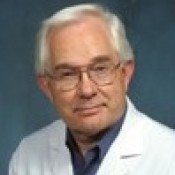The Preeclampsia Foundation in Minneapolis recently awarded University of Mississippi Medical Center Maternal-Fetal Medicine Director Dr. James Martin Jr. with the foundation's Hope Award for his "lifetime achievement in preeclampsia research."
Preeclampsia, a pregnancy disorder that targets a pregnant mother's kidneys, liver and other organs, hits between 5 percent and 8 percent of all pregnancies, and kills about 76,000 mothers worldwide every year. Conservative estimates by the Preeclampsia Foundation say the disease is responsible for 15 percent of all premature births. Hallmarks of the disease are high blood pressure and swelling in the hands and face. Failure to diagnose or treat the disease can result in seizures, brain hemorrhage and organ failure.
Martin, a Jackson resident, has been in the ob-gyn business for about 30 years, and apparently knows plenty about the ailment. UMMC brags that Martin authored 500 papers and three books on preeclampsia, and has contributed more than 70 book chapters dedicated to the topic.
The doctor is a former president of the North American Society for the Study of Hypertension in Pregnancy and the Society for Maternal-Fetal Medicine. He has served on the Preeclampsia Foundation's medical board since its founding, but his history also includes a stint as examiner for the American Board of Obstetrics and Gynecology and 12 years of work with the American College of Obstetricians and Gynecologists (ACOG) as its District Seven chair between 2000-2003. He also served two terms as ACOG National Secretary and is currently a candidate for ACOG president.
UMMC reports that Martin has dedicated a majority of his professional career investigating treatment options for hypertension in pregnancy, and is "a recognized leader in the field" who is willing to work with anybody to battle the disorder.
Martin told the Preeclampsia Foundation that some of the biggest challenges throughout his career was battling a disease while reminding himself that the subjects suffering from the disease are more than just subjects.
"Studying this particular disease in the human patient is extremely complex," Martin told the foundation. "Women are not lab specimens, and we're dealing with them at an extremely vulnerable time."


